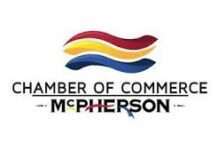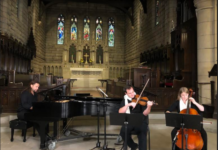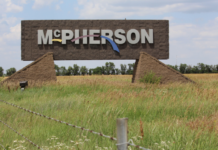Journalism school launching online master’s degree in digital content strategy
LAWRENCE — The William Allen White School of Journalism and Mass Communications is launching its first online master’s program, and students will be able to earn certificates in data interpretation and social media strategy.
As journalism continues its shift into the digital world, many educational experiences are also taking on laboratory and online components. Undergraduate students in the journalism school are taught to embrace social media and digital-first publishing, which allows them to explore how the Internet is changing their profession. Beginning in June 2016, students seeking a master’s degree will have the same opportunity.
The online master’s degree in digital content strategy will be divided into two certificates, one in data interpretation and communication and the other in social media strategy. Students can complete certificates independently, but those who fulfill the requirements for both will earn a master’s degree.
Associate Professor Doug Ward has been working on the program for several years now but has just recently begun developing it with the help of other journalism faculty and associates.
“The program kind of started from the idea that there’s an abundance of information available in the world, but you have to be able to understand where to find it, what to do with it and how to put it together into something meaningful,” Ward said.
Ward said the journalism school has been trying to revamp its master’s program for the last several years. The goal was to develop a program that would include theory and research methods while encouraging students to conduct their own analysis.
“We identified two areas that are especially relevant right now,” Ward said. “One is data, and the other is social media.”
Each of these certificates will require the completion of four consecutive eight-week courses, which will begin in August 2016 and end in May 2017. Students who want to complete both certificates and earn a master’s degree are encouraged to do so in two years, unless they are prepared to work full-time on the coursework.
In the summer before the beginning of the courses in August, there will be two in-person sessions on the Lawrence campus. Students will come to the university for a weekend in June to become familiarized with the program, the staff and their peers. Following that weekend, there will be online coursework before a second weekend session at the end of July.
“I want to bring people to campus for a limited amount of time so they have a face and personality to us beyond the courses and so the students can know one another,” Ward said. “That way, when you’re working online, it’s not just a name on a screen still lacking a connection to the tangible.”
Yvonnes Chen is an associate professor of strategic communication who will be instructing courses in the master’s program. Although she will primarily be working with students in data courses, Chen says research is essential throughout the entire program.
“When it comes to social media strategy, it’s so important to speak to our consumers. We’ve got to know what audiences are like,” Chen said. “But also there should be a strategy behind everything. The strategy hopefully will be guided by research. After that we need to evaluate messages, and that’s why social media metrics is so very important.”
The journalism school has also been working closely with KU Libraries to focus the program’s research component. Ward views journalism and libraries as natural partners in that both institutions are concerned with synthesizing information and catering to changing audiences.
Julie Petr is a KU librarian who has been working with Ward to integrate library services into the program. In the past she has served as a liaison between libraries and the journalism school and has taught library instruction classes within the school. She says several librarians will be instructing aspects of the certificate classes.
“We have a librarian who will be available to help students find secondary and data resources,” Petr said. “Another librarian specializes in helping students organize data files, and we have a librarian who is an expert in GIS, which is one part of data visualization. It’s all about helping students organize their information so it’s easy to retrieve and present.”
Petr also said she will be available to help students access basic research and investigate data and information.
“Some of these students may not have been in school for a while and may not realize how to best search the databases,” Petr said.
Although the program is open to students who have just graduated and want to continue their education, Ward said much of the courses’ content may be more meaningful to individuals who have already been in the workplace and have different experiences.
“We really want people to bring in problems and questions that they’re having in their jobs,” Ward said. “We’re encouraging people to bring their data in to make this a very practical [program]. That way, not only are you pursuing education but you’re also working on problems directly for your office.”
The curriculum for both certificates is about problem solving and using information to create a greater breadth of understanding. As the program evolves, it may begin to explore issues that are particularly pertinent to the continually changing world of journalism.
“It’s about the process of understanding information,” Ward said. “Where it is and how to access it, how to create it, and how to communicate it.”
Read more about applying to the certificate or degree program on the School of Journalism website.g




